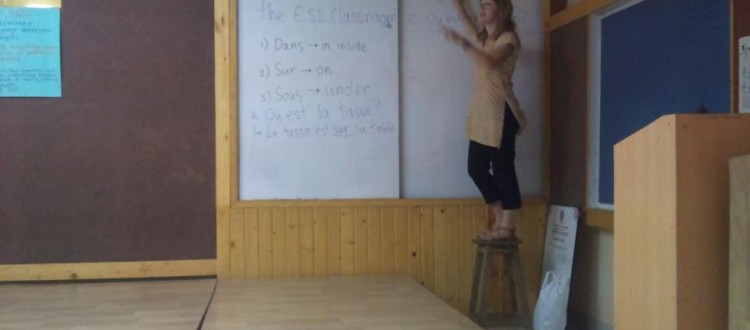“Please Don’t Build a School in India”
This week’s blog comes courtesy of one of our board members, Sarah Birge, who spent a year and a half as a member of our ground team before joining our board. Below, she writes about where her passion for working with Nanubhai comes from.
This title might seem provocative, given that Nanubhai works to improve education in India. However, my eighteen months on the ground as Co-Director gave me strong opinions about how educational development should and should not be implemented. To fully explain these opinions, let’s leave India for a moment.
Haiti, the poorest country in the Western Hemisphere, has at least thirty private NGOs working in education (Haiti Aid Map, 2013). This does not take into account initiatives from NGOs with multiple focuses, other private organizations, religious organizations, or initiatives from major aid organizations like the UN. Haiti does not have an especially functional public school system, and there is no way that these NGOs can reach every child in the country.
After the 2010 earthquake, much was made of the way that NGOs and the international community excluded Haitians from their own rebuilding process. Even before the earthquake, Haiti had more NGOs per capita than almost any other country in the world. All of us can recognize the disconnect between NGOs, the international aid community, and quality of life for the average Haitian.
But what does this say about India and education? My primary qualm with much of the work being done by international and national NGOs is that they are replicating the “Haiti problem” in miniature. Rather than asking what already exists and building upon those systems, the Indian educational community seems determined to start from scratch.
The end result hurts all children. Expensive private schools operate with no oversight or standards, hoodwinking middle-class parents with sleek ads and clean new buildings. At the same time, poorer children don’t have the support they need to graduate from 8th grade. It is true that some private schools are designed to support less privileged children. However, an NGO-run school here or a few seats in a private school there cannot even begin to match the needs of India’s population. What India needs is quality public education.

